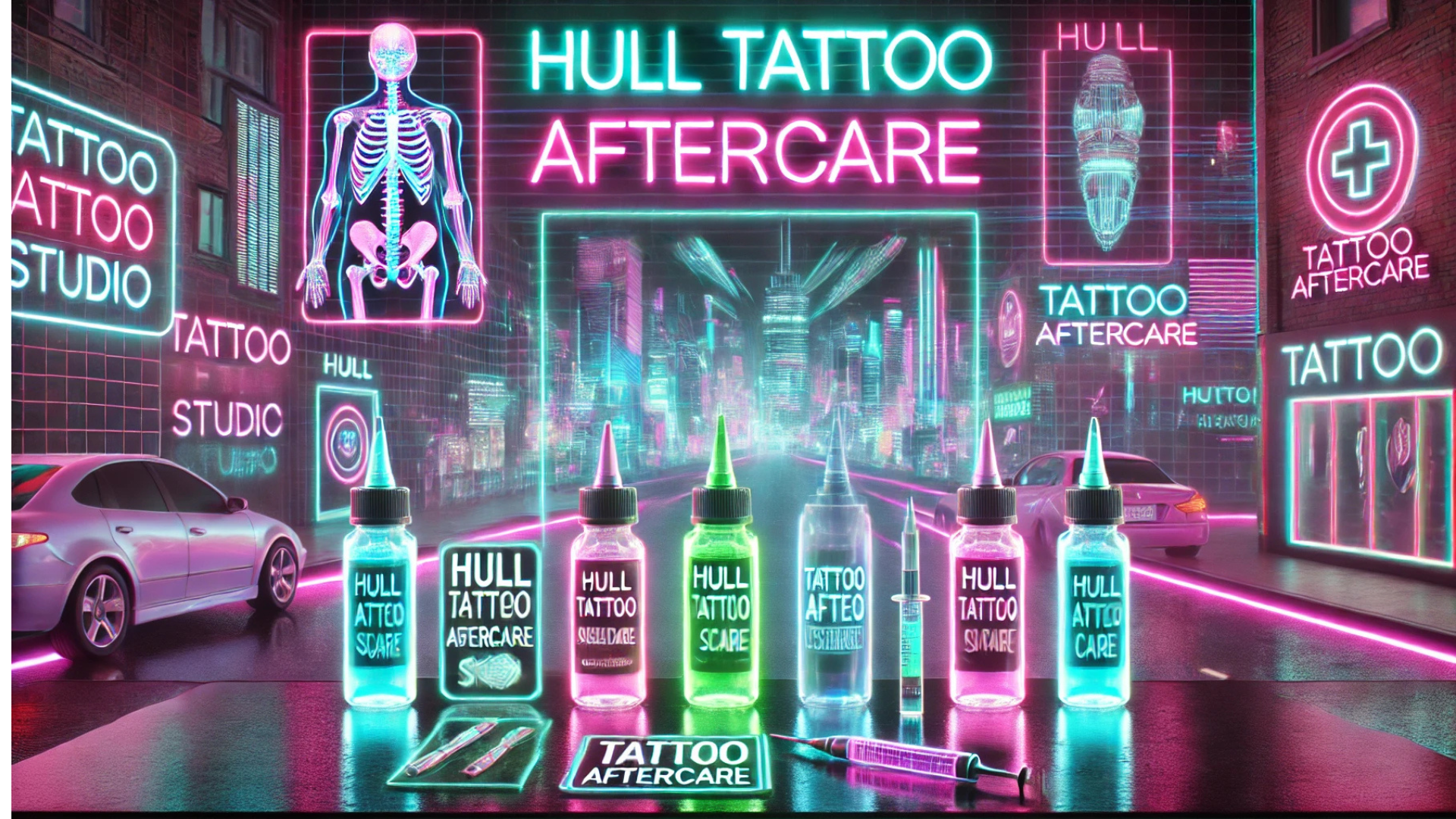Tattoo Aftercare & Healing

19.01.2025
Tattoo Aftercare & Healing
Tattoo healing is one of the most common topics we discuss with our clients at Hull Tattoo Studio. It's a crucial step in the tattoo process—there's little point in doing all the research to find a talented artist, booking an appointment, and getting excited about your new tattoo if poor aftercare ruins it. Improper care can lead to infections, heavy scabbing, ink dropout, or permanent damage to the tattoo.
While different tattoo artists may suggest varying aftercare methods based on their experience, it’s vital to follow your artist’s advice as they know how their tattoos heal under proper care—and what happens when they don’t. At Hull Tattoo Studio, we recommend a straightforward and effective aftercare method to ensure your tattoo heals beautifully.
How to Care for Your Tattoo
Once your tattoo is finished, we clean it using Apollo Aftercare Cleansing Wash (available here), an antibacterial soap that removes any bacteria from the skin. We then wrap your tattoo in clingfilm to keep it clean before you leave our studio.
The Clingfilm Method
Initial Cleaning
- Leave the clingfilm on for at least an hour.
- When you’re ready, gently wash your tattoo with lukewarm water and liquid, unscented, antibacterial soap. Use only your hands—avoid cloths or scrubbers to prevent further trauma to the skin.
- This first wash removes plasma and any forming scabs, helping your skin heal without creating a hard, thick scab.
Drying
- Pat the tattoo dry with a paper towel or a clean towel. Avoid rubbing as it can introduce bacteria or damage the tattoo.
- Allow your tattoo to air dry for about 15 minutes. This ensures no moisture is trapped beneath your healing ointment, which could lead to sweating and thick scabbing.
Applying Cream
- Once dry, apply a small amount of Apollo Aftercare Butter (available here). Use the cream sparingly—it supports your skin’s natural healing process without over-saturating it.
- Repeat this process of cleaning, drying, and applying cream once a day until your tattoo is fully healed. Healing times vary from 7 days to 3 weeks, depending on factors such as the tattoo’s proximity to the heart and the skin trauma involved.
Medical Conditions and Tattoo Healing
Certain medical conditions can complicate the healing process. If you have any of the following, consult a doctor before getting a tattoo:
Skin Conditions
- Eczema: Can cause inflamed, itchy skin around the tattoo.
- Psoriasis: May flare up in response to tattooing.
- Lichen Planus: Leads to flat, itchy, purple bumps.
- Vitiligo: Tattooing may exacerbate blotches.
- Keloids: Overgrowth of scar tissue that may develop within a tattoo.
- Skin Cancer: Tattoos can potentially affect or obscure skin cancer symptoms.
Heart Conditions
- Blood Thinners: Medications that increase bleeding may slow the healing process.
- Endocarditis: Increased risk of infection with certain heart conditions.
Immune Suppression
- Diseases and Medications: Both can slow down the healing process, increasing the risk of infection.
Why These Conditions Affect Healing
Skin conditions often lead to inflammation, irritation, or improper healing, while heart conditions and immune suppression can increase infection risks or slow down your body’s ability to recover. Always seek medical advice if you’re unsure.
Activities to Avoid During Healing
To protect your tattoo and ensure proper healing, avoid the following:
- Swimming: Pools, lakes, and oceans are breeding grounds for bacteria.
- Baths, Steam Rooms, and Saunas: Heat causes sweating, which can affect healing. Chlorine in water can bleach the tattoo.
- Jacuzzis: High temperatures and bacteria increase the risk of infection.
Additional Tips for Healing
- Wear Loose Clothing: Tight clothing can irritate the tattoo and disrupt the healing process.
- Avoid Direct Sunlight: UV rays can damage a healing tattoo and cause fading.
- Stay Hydrated and Eat Well: Proper hydration and nutrition support your body’s natural healing processes.
- Do Not Pick or Scratch: Let any peeling or scabbing occur naturally.
Final Thoughts
Taking proper care of your tattoo is essential to ensure it heals well and looks amazing for years to come. For more detailed advice, visit our Tattoo Aftercare page. Always consult your artist if you have specific concerns or questions.